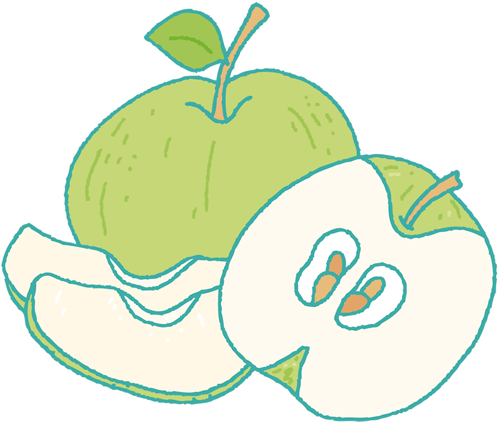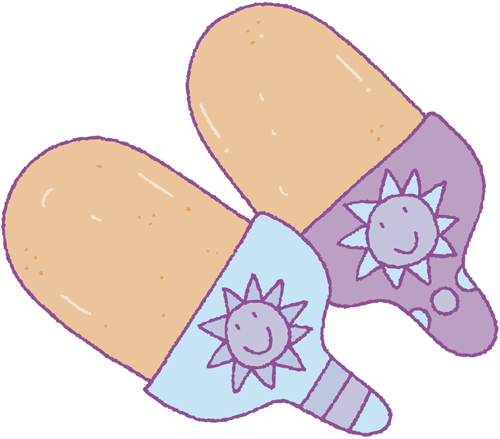|
Your baby’s diet will impact his health and affect his mood, energy levels, and sleeping patterns too. Ensuring that he is eating well will go a long way toward encouraging optimum health. And when he does get sick, there is plenty you can do to help him to recover quickly and easily.

| Q: |
My baby seems quite hyper after some meals; what foods might be causing this?
| | A: |
Refined carbohydrates, such as white pasta, rice, and flour, as
well as sugar, can cause your baby’s blood sugar to rise quite suddenly,
giving him a burst of energy that quickly dissipates into exhaustion
and sometimes tearfulness. If this is a regular pattern, swap his
refined carbs for whole grains, choosing whole wheat pasta and bread
over the white alternatives, and brown rice and whole wheat flour
instead.
Cut out the sugar, too.
Sometimes your baby will appear to be a little hyperactive after a big
glass of fruit juice or a meal that contains a lot of sweet fruits or
vegetables. These are healthy foods, so you can try adding a little
protein alongside, such as some yogurt, cheese, chicken, fish, lentils,
chickpeas, or even a bit of his usual milk, to prevent them from hitting
his bloodstream with a rush of sugar.
|
| Q: |
My baby is teething and won’t eat; is there anything that will soothe her?
| | A: |
Try not to worry. Illness and teething can have a huge impact on
your baby’s appetite, and in the short term this will cause no problems.
Foods that require some chewing may make her more uncomfortable, so it
might help to revert to smoother purées for a short period, and to offer
fresh fruit popsicles
to relieve her symptoms. Offer a teething ring or a cold, clean wet
washcloth for her to chew on before meals, because this can remove the
worst of the discomfort.
|
| Q: |
Is there anything I can do for my baby’s constipation?
| | A: |
In most cases, constipation is the result of inadequate fluid
and/or fiber in your baby’s diet. Encourage him to drink lots of water
throughout the day, and ensure that he gets lots of fresh fruits and
vegetables in his diet, which are good sources of both fluids and fiber.
Water-rich finger foods, such as papaya, melon, mango, quartered
grapes, and red pepper strips, are ideal choices. Consider, too, giving
him a little whole wheat bread, brown rice, and other whole grains,
which are high in healthy fiber.
|
| Q: |
What is the difference between probiotics and prebiotics and why do so many baby foods contain them?
| | A: |
Probiotics are essentially strains of healthy bacteria that are
introduced to your baby’s diet, so that they can settle in the stomach
and establish a healthy “colony” to combat the unhealthy bacteria and
other “invaders,” such as viruses or fungi, which may try to take over.
They remain intact throughout the digestive process, and deliver healthy
bacteria directly to the large intestine. Your baby’s stomach forms an
important part of her immune system, and having a good, healthy balance
of “flora” (healthy bacteria), plays an important part in keeping
illness at bay. You’ll find them naturally in live yogurt, and they are
added to different foods.
Prebiotics are
non-digestible food ingredients that encourage your baby’s own healthy
bacteria (flora) to grow in her stomach. Natural prebiotics include
asparagus, garlic, leeks, onions, and artichokes, but because these are
not the usual baby fare, prebiotics are often added to formula, cereals,
and other food to ensure that your baby gets what she needs for optimum
immunity.
|
| Q: |
Are there any foods that I should avoid when my baby has a vomiting and diarrhea virus?
| | A: |
Continue to offer milk feeds regularly, with extra rehydration solution and water, if necessary .
Citrus fruit, fruit juices, and strong spices all seem to have a
negative impact on the digestive system, and can make symptoms worse.
Stick to the basics, and offer rice, ripe bananas, apples, as well as a
little toast. These foods will help to keep up your baby’s energy
levels.
|
| Q: |
Is there any truth in the saying “feed a cold and starve a fever”?
| | A: |
In both cases, it is important to ensure that your baby is
getting enough fluids, as dehydration is far more serious than any fever
or cold. Some babies (and adults!) do seem to avoid food when they have
a temperature, which is probably the body’s natural reaction, as it
diverts energy away from the digestive system toward the areas that need
healing.
In the case of a
cold, which is usually more superficial, babies might be hungrier, as
they require nutrients to fight off the infection, and don’t have one
particular part of the body demanding attention. The best advice is to
follow your instincts. If your baby is hungry, offer him something to
eat; if he isn’t, give him plenty to drink. If there is no resolution or
change within 48 hours, pay a visit to your doctor.
|
Allergy alert
If you believe that food is causing symptoms, or making your baby unwell in any way, then you should see your doctor, who
may wish to refer you to a specialist, who can work out if there are any
allergies or intolerances afoot.
Peach Melba Popsicles
Fresh fruit popsicles are great for soothing sore gums
when your little one is teething. They are also a great way to get more
fluids into your sick child. This is a lovely combination of fruits,
but these would also be tasty made with peaches and strawberries.

5 minutes
2 large, ripe peaches 11/2 cups fresh or frozen raspberries (or you could use strawberries) 11/4 cups peach or apple juice 2–3 tbsp sugar (optional)
Peel the peaches,
then quarter them and remove the pits. Put the peaches and berries in a
blender with half the juice and blend to a purée. Press the purée
through a sieve to remove the seeds.
Mix the purée with the remaining peach or apple juice and sweeten to taste with sugar, if needed.
Pour the purée into popsicle molds and freeze for a few hours or overnight.
|